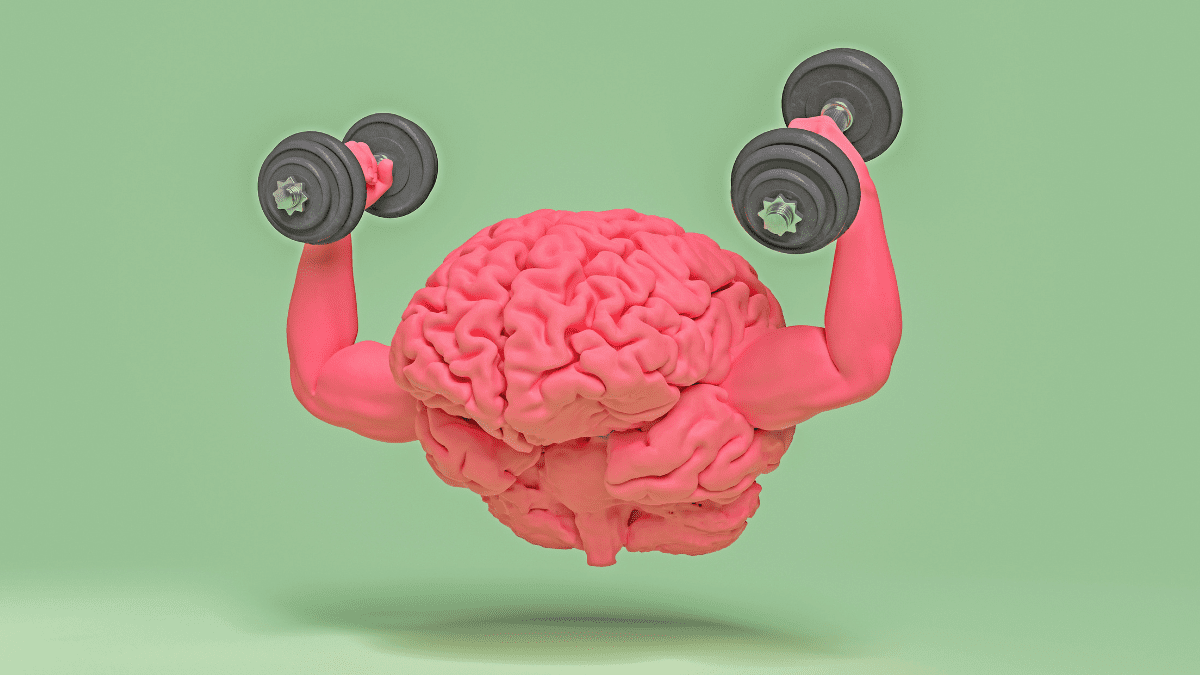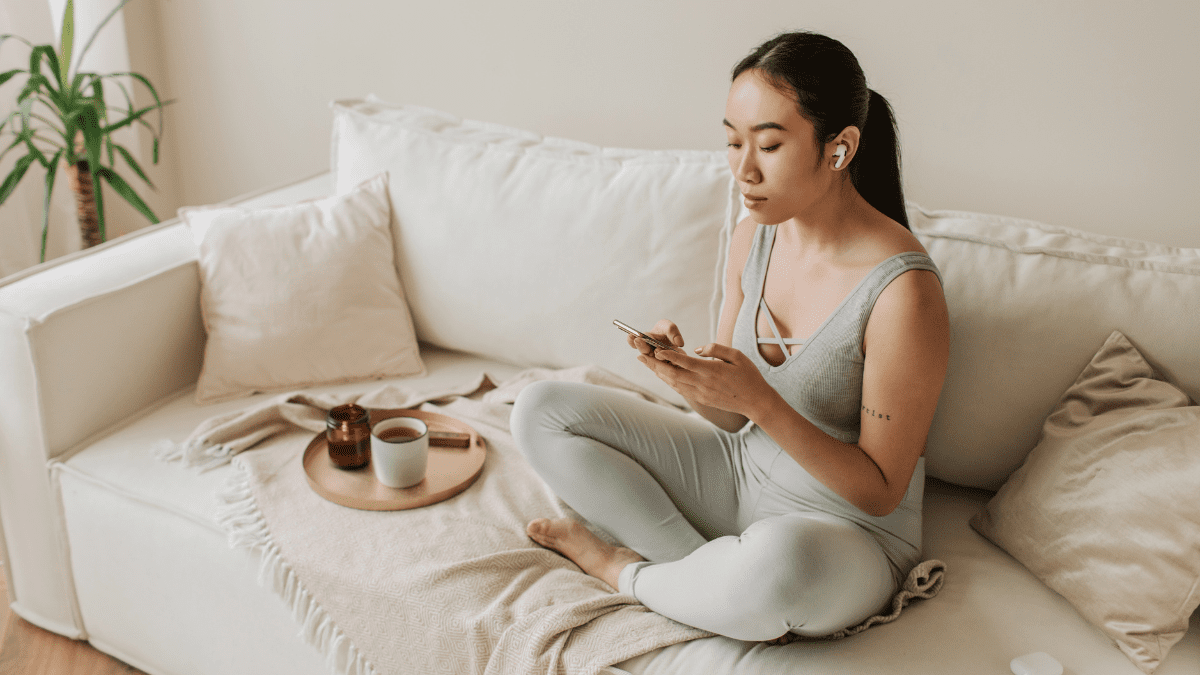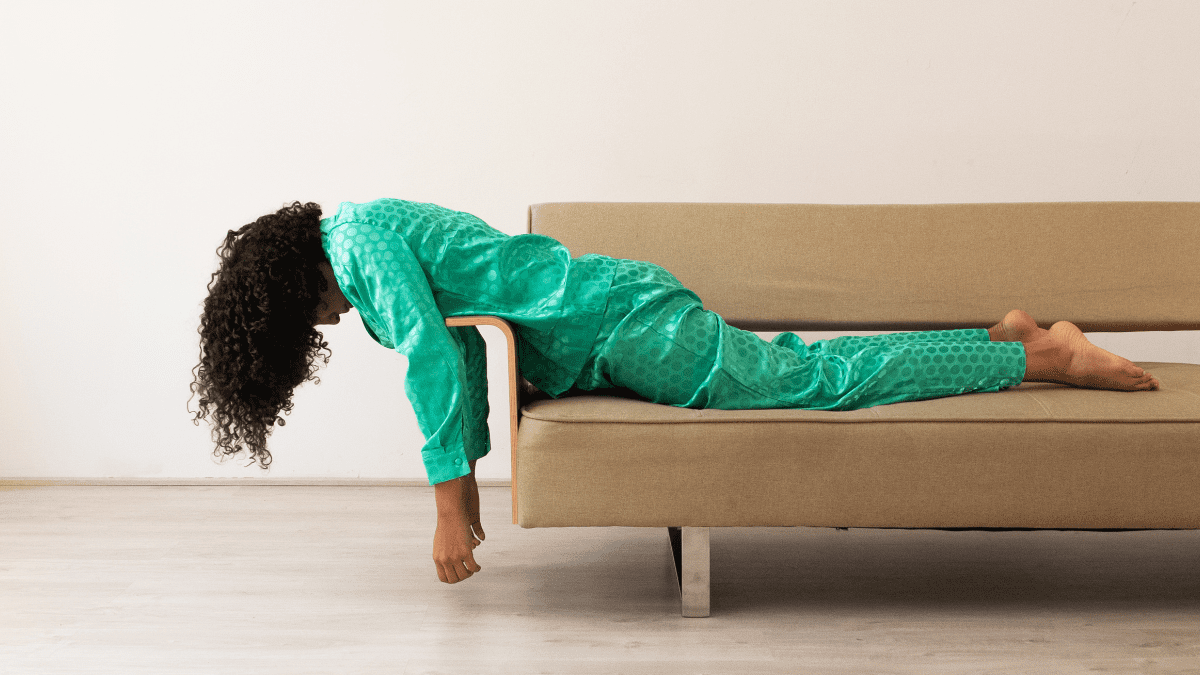ADHD Insomnia Relief: How to Sleep Fast & Wake More Rested
ADHD insomnia drains your peace. Learn natural, science-backed ways to sleep faster, soothe racing thoughts, and finally wake up clear, calm, and ready to thrive again.
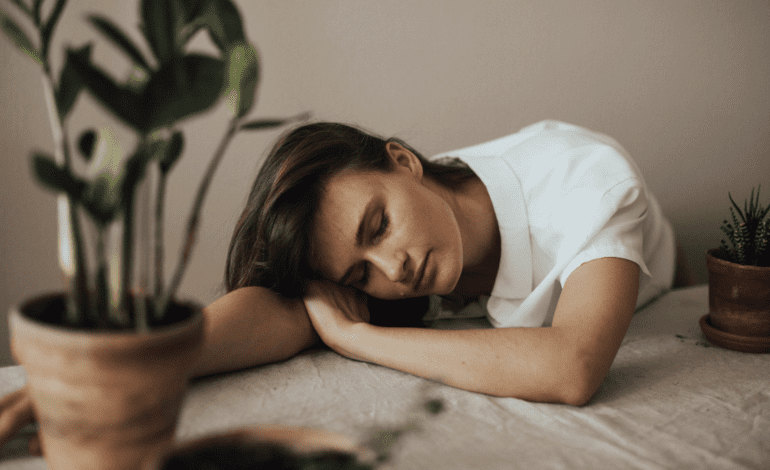
- Why Does ADHD Insomnia Feel So Different?
- What Causes ADHD Insomnia in the First Place?
- How ADHD Insomnia Affects Your Body, Mood, and Daily Life
- What Makes ADHD Insomnia Different From Regular Sleeplessness?
- ADHD Insomnia — FAQ
- How Does ADHD Insomnia Affect Mental Health and Daily Functioning?
- What Triggers ADHD Insomnia and How to Stop It
- What Natural Sleep Aids Work Best for ADHD Insomnia?
- What Lifestyle Habits Help ADHD Insomnia Long-Term?
- Conclusion – Your ADHD Insomnia Healing Plan Starts Here
Why Does ADHD Insomnia Feel So Different?
Is Your ADHD Brain Keeping You Up At Night?
If you’re lying awake, wired but exhausted, you’re not alone. ADHD insomnia is real — and for many, it’s relentless. While others drift off easily, your mind races. Your body feels on edge. And every night becomes a struggle between exhaustion and overstimulation.
This kind of insomnia isn’t just frustrating. It’s deeply emotional. You want rest, but your brain won’t cooperate. You try the usual tricks — and still end up scrolling, spiraling, or wide awake at 3 a.m. Again.
Here’s the truth: ADHD insomnia isn’t just about poor sleep hygiene. It’s about how your brain is wired. From disrupted circadian rhythms to dopamine imbalance, neurodivergent sleep struggles run deeper than habits alone.
The good news? You can shift this.
With the right strategies, it’s possible to calm your mind, fall asleep faster, and wake up feeling clear — without forcing or numbing yourself. We’re not here to offer generic sleep hacks. We’re here to guide you back to balance, gently and naturally.
In this guide, you’ll discover why ADHD insomnia happens, what science says about it, and how to create a calming bedtime flow that actually works for your unique brain. You’ll also find natural tools, sleep ritual ideas, and when to seek deeper support.
If you’re craving more holistic support for ADHD beyond just sleep, check out our Natural Help for ADHD and Autism post to start building your full-body healing approach.
Ready to reset your nights? Let’s explore why ADHD disrupts sleep in the first place — and how to reclaim the rest you deserve.
What Causes ADHD Insomnia in the First Place?
Why Does The ADHD Brain Struggle To Sleep?
ADHD insomnia starts in the nervous system. Instead of winding down when the world gets quiet, the ADHD brain often speeds up. You may feel physically exhausted, but mentally overstimulated — a frustrating mismatch that makes sleep feel just out of reach.
Here’s why this happens:
- Dopamine Dysregulation: ADHD brains often have lower dopamine levels, which leads to a constant search for stimulation — even at night.
- Delayed Circadian Rhythms: Many people with ADHD experience a shift in their internal clock, preferring to fall asleep and wake later than average.
- Emotional Carryover: Stressful events from the day tend to linger longer. Instead of fading, they replay like a highlight reel in your mind.
How Does Hyperarousal Keep You Awake?
To fall asleep, your body needs to shift into “rest and digest” mode, also known as the parasympathetic state. But with ADHD, your brain often stays stuck in “fight or flight” — even when you’re lying still.
That mismatch creates classic ADHD insomnia symptoms:
- Trouble falling asleep despite feeling tired
- Frequent nighttime wakeups
- Grogginess in the morning
- Anxiety or dread around bedtime
Try this: Keep a two-week journal. Note when you eat, move, sleep, and feel energetic or anxious. Patterns often reveal what triggers your restless nights.
Can ADHD Medication Worsen Insomnia?
Sometimes, yes. Stimulant medications like Adderall or Ritalin can delay sleep, especially if taken late in the day. However, the right dosage and timing can actually improve sleep by reducing daytime chaos.
If you suspect your meds are disrupting sleep, speak with your provider. Small shifts can make a big difference.
Quick Self-Check: Is Your System in Overdrive?
- Exhaustion sets in, but your brain stays unusually alert
- Conversations and to-do lists loop in your mind without pause
- Scrolling, snacking, or pacing become your go-to ways to unwind
- Mornings begin with grogginess or a wave of anxiety, no matter how long you slept
If this sounds familiar, your nervous system may be stuck in high gear. The next step is learning to shift it gently into rest mode — something we’ll explore in the next section.
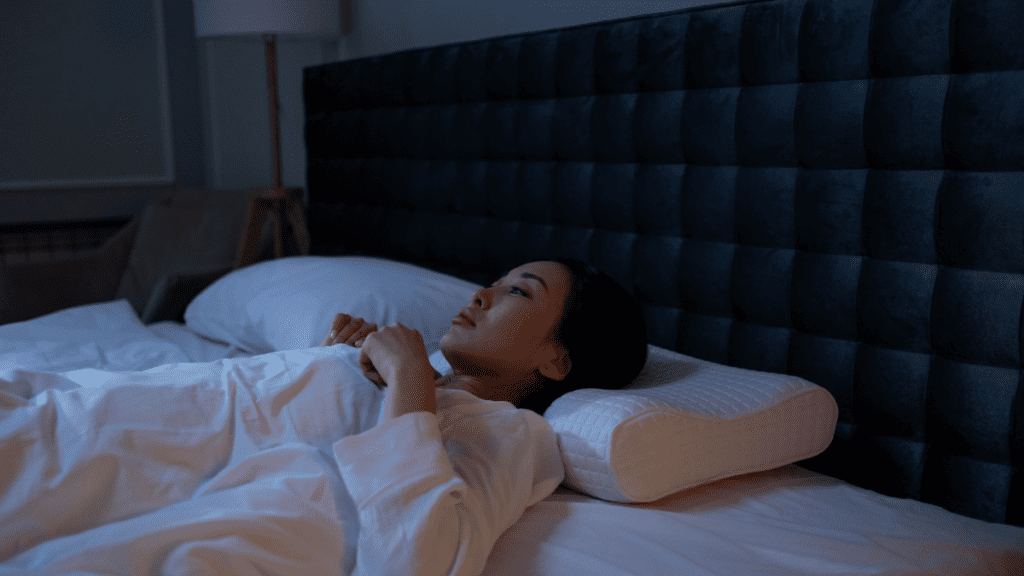
How ADHD Insomnia Affects Your Body, Mood, and Daily Life
Why Does Sleep Deprivation Hit ADHD Brains Harder?
For people with ADHD, a bad night’s sleep doesn’t just mean feeling tired — it can unravel your entire day. When your brain is already working harder to focus, regulate emotions, and stay organized, losing rest compounds the challenge.
Chronic ADHD insomnia can lead to:
- Foggy thinking and poor memory
- Low frustration tolerance
- Mood swings and emotional outbursts
- Digestive issues and appetite changes
- Weakened immune function and burnout
Sleep is the nervous system’s chance to reset. Without it, ADHD symptoms don’t just persist — they intensify.
How Does Insomnia Dysregulate Your Nervous System?
ADHD brains rely on rhythm and structure to function well. But poor sleep throws off the body’s ability to self-regulate. You might feel overstimulated by noise or light, overwhelmed by small tasks, or completely disconnected from your body.
Common signs of dysregulation include:
- Reacting strongly to sensory input
- Losing track of time or zoning out
- Eating erratically or skipping meals
- Feeling “on edge” for no clear reason
Improving sleep is one of the fastest ways to restore nervous system balance — gently and naturally.
Does Lack Of Sleep Increase Emotional Reactivity?
Absolutely. Sleep supports the prefrontal cortex — the part of the brain that helps you manage emotions, make decisions, and stay calm. When you’re sleep-deprived, that system short-circuits.
This can trigger a spiral:
Poor sleep → heightened emotion → more stress → even worse sleep
A 2021 clinical review published in the Journal of Attention Disorders found that sleep deprivation in individuals with ADHD significantly worsens emotional regulation and executive functioning. Read the full study on PubMed here.
Mini Checklist: Are You Feeling the Effects?
- You wake up already feeling anxious
- You depend on caffeine or sugar before noon
- Your mood drops suddenly in the afternoon
- You feel like you’re failing, even when you’re trying hard
These aren’t signs of laziness. They’re signs of a brain that’s running on empty — and needs support, not shame.
What Makes ADHD Insomnia Different From Regular Sleeplessness?
Why Doesn’t Traditional Sleep Advice Work For Adhd Brains?
If you’ve ever been told to just “put the phone down” or “try a warm bath,” you already know — generic sleep tips often fall flat for ADHD insomnia. That’s because ADHD brains don’t follow the same patterns. The issue isn’t just falling asleep. It’s calming a nervous system that resists slowing down.
Common challenges include:
- Racing thoughts that intensify at night
- Sensory overload from noise, light, or textures
- Emotional replays of the day’s interactions
- An unpredictable mix of exhaustion and alertness
What you need isn’t a stricter bedtime rule — it’s a sleep strategy designed for how your brain actually works.
How Does Circadian Rhythm Play A Role In Adhd Insomnia?
People with ADHD often experience delayed sleep phase syndrome, meaning their body clocks run later than typical. This causes late-night energy spikes and groggy, disoriented mornings — even with enough hours in bed.
A 2021 study published in Sleep Medicine found that individuals with ADHD tend to release melatonin up to 90 minutes later than neurotypical individuals. This delay shifts the entire sleep-wake cycle, impacting mood, focus, and daytime functioning.
Signs of disrupted rhythms:
- Feeling most awake between 10 p.m. and 2 a.m.
- Trouble waking even after long sleep
- Daytime crashes and nighttime alertness
Understanding your circadian rhythm helps you shift it — gently, with consistency and light cues.
Is Nighttime Overstimulation Part Of The Problem?
Yes. ADHD often comes with heightened sensory sensitivity. This means the smallest background noise, fabric texture, or internal thought spiral can overstimulate you — just when you’re trying to rest.
You might notice:
- Falling asleep feels impossible without either complete silence or some kind of distraction
- Late-night energy surges often arrive just when you hoped to wind down
- Conversations, worries, or to-do lists replay in your mind long after bedtime
- Sensory input like light, fabric, or temperature often feels amplified and overwhelming
ADHD insomnia isn’t just sleeplessness — it’s a neurological mismatch between your mind, your body, and the clock.
Quick Signs Your Sleep Struggles Are ADHD-Related:
- The thought of turning off the lights fills you with dread
- Productivity often peaks when the world has already gone to bed
- Unwinding only happens through overstimulation — TV, scrolling, or music
- Sleep doesn’t come unless your mind or body has been pushed to the edge
The first step to healing is recognizing your pattern — not blaming yourself for it.
ADHD Insomnia — FAQ
What Makes ADHD Insomnia Different From Regular Insomnia?
ADHD insomnia is driven by neurological and circadian differences. While typical insomnia may stem from stress or poor habits, ADHD brains often experience delayed melatonin release, hyperarousal, and difficulty shifting into rest mode — even when physically exhausted.
Can ADHD Medication Help Or Worsen Sleep Problems?
Both. Stimulant medications like Adderall or Ritalin can delay sleep if taken too late in the day. However, when properly timed, they can improve daytime regulation and indirectly support better sleep. Always speak to your provider about timing and dosage adjustments.
What Are The Best Natural Remedies For ADHD Insomnia?
The most effective natural tools include magnesium glycinate, L-theanine, passionflower, and light therapy. A consistent bedtime routine, reduced screen time, and mindfulness techniques like body scans or journaling also help calm the nervous system before sleep.
How Does ADHD Insomnia Affect Mental Health and Daily Functioning?
Why is Sleep Loss More Disruptive for ADHD brains?
For someone with ADHD, a lack of sleep doesn’t just mean low energy — it can destabilize your entire system. ADHD already impacts executive function, impulse control, and mood regulation. Without quality sleep, those challenges amplify.
Here’s what that looks like:
- Simple tasks become overwhelming
- Emotional reactions feel outsized
- You lose motivation, even for things you enjoy
- Productivity dips while shame and frustration rise
Sleep loss also contributes to increased cortisol levels, which further dysregulate the nervous system. In ADHD brains, that creates a feedback loop of exhaustion and emotional volatility.
How Does Emotional Dysregulation Worsen With Poor Sleep?
The prefrontal cortex — the brain’s control center for emotional regulation — depends on restorative sleep. When you’re dealing with ADHD insomnia, that system becomes compromised.
You might:
- Snap at people without intending to
- Forget simple tasks or make impulsive decisions
- Feel emotionally raw or overwhelmed by small issues
According to a 2021 review published in the Journal of Attention Disorders, sleep deprivation significantly worsens emotional regulation and executive functioning in adults with ADHD, especially in women and individuals with co-occurring anxiety or depression. Read the study here.
Why Does Daily Functioning Feel So Unpredictable?
When your sleep is irregular, your daily life becomes harder to manage. What felt doable yesterday suddenly feels impossible today — not because you’re failing, but because your brain is in survival mode.
Tasks like:
- Answering emails
- Following a routine
- Making decisions
- Staying focused in conversation
…can all feel harder without enough rest.
Consistency in sleep leads to consistency in your day. That’s why ADHD healing starts with the basics — especially sleep.
Quick Checklist: Is Sleep Disrupting Your Daily Life?
- Do you wake up tired even after 7+ hours in bed?
- Are you more irritable or anxious in the mornings?
- Are you struggling to complete basic routines or work tasks?
- Do you feel like your day starts in chaos and ends in guilt?
If so, your sleep isn’t a side issue — it may be the root issue.
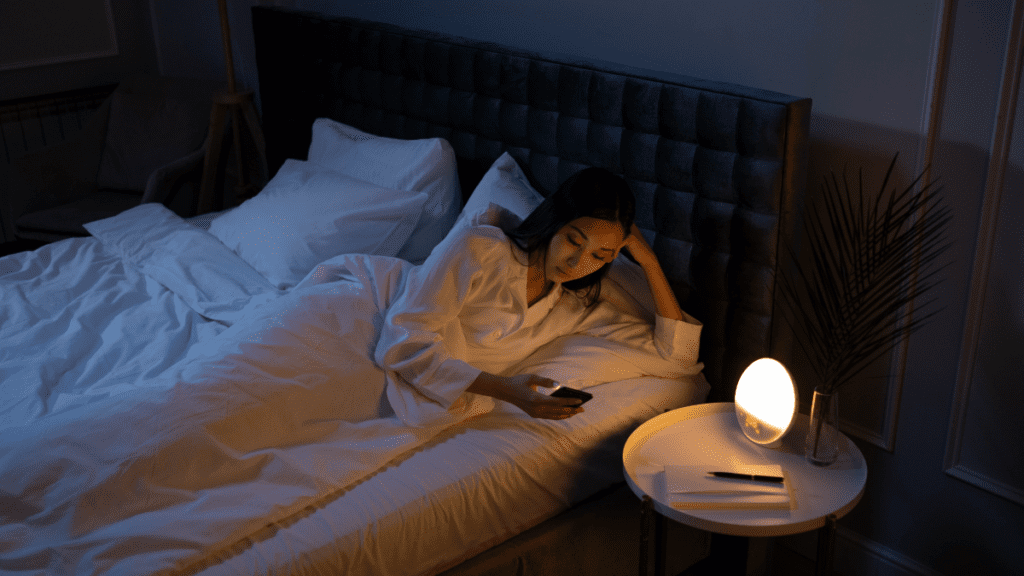
What Triggers ADHD Insomnia and How to Stop It
Why does ADHD make it so hard to fall asleep?
ADHD insomnia isn’t just about racing thoughts — it’s about how your brain processes stimulation, time, and emotional stress. Many people with ADHD experience delayed melatonin release, meaning their bodies don’t feel sleepy when they’re “supposed” to.
Combine that delay with overstimulation from screens, nighttime hyperfocus, or emotional overwhelm, and sleep becomes a nightly struggle.
What are the top ADHD insomnia triggers?
Understanding your personal sleep disruptors is the first step to creating calm. The most common triggers for ADHD-related insomnia include:
- Blue light exposure in the evening, which delays melatonin even more
- Stimulant medication or caffeine too late in the day
- Mental hyperactivity, like ruminating or rehashing conversations
- Emotional processing, especially after stressful days
- Sudden bedtime transitions, without a wind-down period
Even healthy habits like reading or journaling can backfire if done too close to bedtime without signaling the body to slow down first.
How can you stop the ADHD insomnia cycle?
You don’t need to fight your brain — you need to flow with it. These strategies support your natural rhythm while gently guiding your system toward rest:
- Anchor your mornings: Wake at the same time daily to reset your internal clock
- Switch to red or amber lights in the evening to signal melatonin production
- Try magnesium glycinate or L-theanine, which calm the nervous system without sedation
- Create a soothing nighttime ritual: Think reading, gentle stretches, calming music — the same way, every night
These aren’t quick fixes — they’re small, daily shifts that retrain your brain to feel safe enough to rest.
What Natural Sleep Aids Work Best for ADHD Insomnia?
Can supplements gently support ADHD sleep?
When it comes to ADHD insomnia, natural supplements can help calm the mind without sedation. These gentle aids support neurotransmitters like GABA and melatonin — which are often out of balance in ADHD brains.
Here are a few research-backed options:
- L-theanine – Found in green tea, promotes alpha brain waves and relaxation
- Magnesium glycinate – Supports muscle relaxation and stress response
- Zinc – Aids in dopamine and melatonin regulation
- Melatonin – Helpful for resetting delayed sleep cycles, especially in ADHD
Consistency is key. Most supplements work best when taken 30–60 minutes before bed, and when paired with other calming habits.
Which herbs can soothe a restless ADHD brain?
Herbal remedies can provide a gentle nudge toward sleep — especially when your mind feels overstimulated. These nervine herbs are known for reducing anxiety, easing muscle tension, and lowering cortisol levels:
- Passionflower – Calms racing thoughts and anxiety
- Chamomile – Soothes digestion and nervous system tension
- Ashwagandha – Balances stress hormones
- Valerian root – Helps with sleep latency and nighttime wakefulness
Try these as teas, tinctures, or capsules. For best results, use them as part of a structured bedtime flow.
Simple natural sleep routine to try
If you’re new to supplements, keep it simple:
- Start with 200–400 mg of magnesium glycinate at night
- Add 100–200 mg of L-theanine if you’re overstimulated
- Use 0.3–1 mg of melatonin occasionally, not nightly
- Avoid all supplements within 2 hours of stimulants or screen exposure
Track your response for 1–2 weeks. Focus on sleep quality, not just duration. Less grogginess and faster sleep onset are strong signs you’re on the right path.
What Lifestyle Habits Help ADHD Insomnia Long-Term?
Can a consistent sleep routine really help ADHD insomnia?
Absolutely. ADHD brains thrive on rhythm. While spontaneity may feel natural during the day, your nervous system benefits from predictability at night.
The most powerful ADHD insomnia remedy is a regular sleep-wake schedule. It helps recalibrate melatonin timing and trains your brain to expect rest.
Start with these habits:
- Wake up and go to bed at the same time every day — even weekends
- Create a relaxing wind-down ritual that starts at least 30 minutes before bed
- Dim your lights or use amber bulbs to reduce stimulation and support melatonin release
Even small acts of consistency send safety signals to your nervous system — which helps it finally shift out of “alert” mode.
How does exercise support ADHD-related sleep issues?
Movement is essential for resetting both energy and emotion. For ADHD brains, daily exercise supports dopamine regulation, reduces restlessness, and calms mental clutter — all key for better sleep.
Here’s how to use it wisely:
- Choose moderate-intensity movement like brisk walking, swimming, or dancing
- Avoid vigorous workouts late at night, which can spike cortisol and delay sleep
- Aim for 20–40 minutes a day, ideally finished by early evening
What daily practices can calm a racing mind before bed?
ADHD insomnia is often caused by mental overflow. Unprocessed thoughts, feelings, or stimulation from the day can make your brain spin long after lights out.
To quiet the noise:
- Do a “brain dump” journaling session to offload stress and to-dos
- Try breathwork or a body scan to reconnect with calm
- Use white noise or soft ambient music to buffer sensory distractions
These rituals act like bridges between the chaos of your day and the calm of sleep. The more consistent they are, the more effective they become.
Conclusion – Your ADHD Insomnia Healing Plan Starts Here
You don’t need to fight your brain to sleep better. You just need to understand how it works — and give it the right tools.
ADHD insomnia isn’t just about being wired at night. It’s often a signal that your nervous system, hormones, or emotions are out of sync. The good news? You can change that. From optimizing your sleep-wake rhythm to gently calming your mind before bed, each choice builds a safer path to rest.
As we explored:
- ADHD brains need structure — consistent sleep routines matter
- Nutrition and supplements like magnesium and L-theanine can ease restlessness
- Melatonin cycles and cortisol patterns must be realigned, especially with sensory or emotional dysregulation
- Lifestyle practices like exercise and evening wind-downs support lasting improvement
Healing takes patience, but every step helps. One good night makes the next easier. One small change builds momentum. You don’t need to do it perfectly — just start.
And if you’re ready to create calm from the moment you wake up, explore our article on the ADHD-friendly morning routine that transforms your day. Healing starts the moment you open your eyes.
Tonight, soften. Breathe deeper. Let your body remember how to rest.
Created by Lili Vu, holistic health & nutrition coach in training. Deeply passionate about mind-body healing, nourishment, and intentional living — practices I’ve lived, tested, and continue to grow through. Embracing my ADHD and supporting my partner through a life-altering stroke transformed how I understand the nervous system, resilience, and healing. I explore holistic well-being practices including yoga, plant-based nutrition, gut and hormone health, trauma recovery, and mindful habit change — all rooted in my personal healing journey. 🌿



